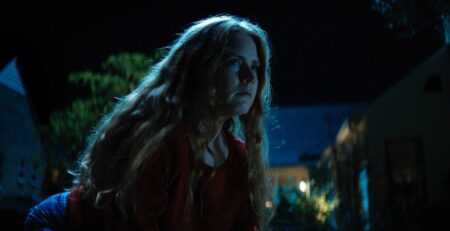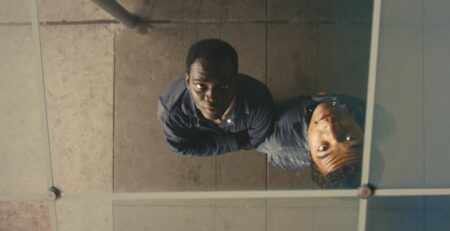
“We must go and see for ourselves” was the motto of Jacques-Yves Cousteau, an explorer of legendary status who went from using the sea to escape from the horrors of the surface to facing and transforming his own guilt into a crucial legacy of environmentalism. Liz Garbus explores this deceptively complex life in Becoming Cousteau, a film that serves both as a tribute to an icon and a powerful warning on the devastation of our planet.
New generations, myself included, might not be too familiarized with the figure of Cousteau, but he was a revolutionary of the seas whose inventions and nature documentaries were the stuff of dreams in the second half of the past century. His trademark red hat gave him a distinct look and his successful TV show The Undersea World of Jacques Cousteau that ran from 1968 to 1976 made him a celebrity worldwide. He was the world’s coolest explorer and Garbus doesn’t waste time explaining how he got there.
Becoming Cousteau traverses the life of its subject in a somewhat traditional manner. Garbus uses a vast amount of archival footage combined with audio clips, readings of Cousteaus’s diary, and a wondrous score composed by Saunder Jurriaans and Daniel Bensi. In a straightforward manner, we learn about his entry into the French Navy and the accident suffered during his twenties that led him to leave aviation behind and focus on the ocean.
Out of necessity, Cousteau developed new technology to dive deeper into the water and film his ventures, combining his passion for film with his love for the ocean. He eventually assembled a crew, modified a boat into the now legendary Calypso, and shot what became the first documentary film (or as he called it, ‘adventure film’) to ever win the Palme D’Or at Cannes: The Silent World. Garbus shows footage from said film of Cousteau and friends brutally killing sea creatures, but we barely hear any of his thoughts about this cruelty. The same thing happens when we learn about his collaboration with oil companies to find black gold under the sea. This has a purpose that soon becomes the strength of Becoming Cousteau.
As the film advances and we learn about Cousteau’s relationship with his family, his increasing popularity, and the behind-the-scenes machinations to lift The Undersea World TV show off the ground, the documentary starts to transform. Slowly, snippets of conscience start to appear: it’s Cousteau’s realization of the damage he’s done. This is when Becoming Cousteau becomes a special film.
The inhumane beatdown of sharks is now addressed and the worry about the rapid destruction of ocean floors by oil companies takes center stage. Cousteau realizes that something that looked acceptable years ago is now an active danger. Although he justifies his actions, guilt starts to appear in his eyes, and a desperate need to take action ensues. The Cousteau Society rises and some hope is born with it, but when tragic personal events unfold, the weight of the mission at hand turns Cousteau gloomy, pessimistic, and realistic. Despite being decades old, his voice becomes our voice in 2021 as he speaks about how useless it all seems. His activism efforts and popularity don’t seem to be changing a thing, as industries are more voracious than ever and environmental laws are blatantly violated.
The future looks bleak and we can’t do much about it. This is the truth that weighs heavy on our generation and Becoming Cousteau links past and present to show that, despite the passage of time, environmental efforts, and modern research, things haven’t changed. Or have they?
One more twist in Cousteau’s life sparks a shimmer of hope: As he keeps fighting and creating awareness, Becoming Cousteau becomes a cinematographic understanding of the true legacy of Jacques Cousteau. It’s never too late to change and turn the past into fuel to improve the future. The task at hand might look grim, but optimism can go a long way toward inspiring millions to take action. A planet depends on it.
Becoming Cousteau is screening as part of TIFF 2021. Cover image courtesy of TIFF.
Becoming Cousteau
-
Rating - 8/108/10
TL;DR
It’s never too late to change and turn the past into fuel to improve the future. The task at hand might look grim, but optimism can go a long way toward inspiring millions to take action. A planet depends on it.




